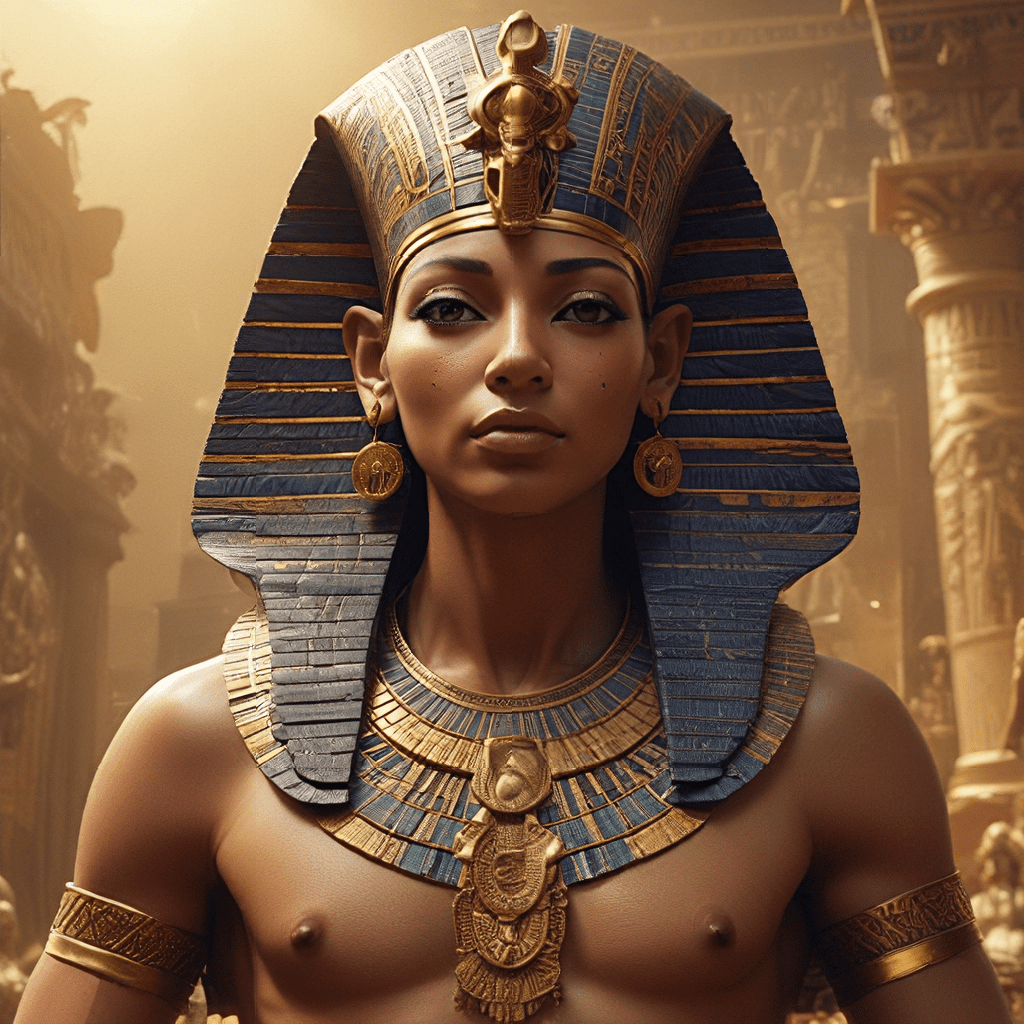The Egyptian Gods in Modern Culture: From Pop Culture to Academic Discourse
The ancient civilization of Egypt holds an enduring fascination for people around the world. Its majestic pyramids, intricate hieroglyphs, and compelling mythology have captivated imaginations for centuries. But beyond the ancient ruins and historical texts, the Egyptian gods continue to exert a significant influence on modern culture, appearing in everything from popular entertainment to scholarly discourse.
2. Egyptian Gods in Popular Culture: A Source of Inspiration
Egyptian deities have become a popular source of inspiration for filmmakers, television writers, authors, and video game developers. From the iconic “The Mummy” franchise to the sci-fi adventure series “Stargate,” these works bring ancient Egyptian mythology to life on the big and small screens. The “Clash of the Titans” film series, with its depiction of the god Zeus, also draws heavily on elements of Egyptian mythology. In the video game realm, the “God of War” series features the Greek god Kratos, but it also incorporates elements of Egyptian mythology, including characters like the god Anubis.
These portrayals often recontextualize and reinterpret ancient Egyptian mythology. While some strive for historical accuracy, others take liberties, weaving the gods into fantastical narratives. Despite these variations, the use of Egyptian gods in popular culture provides a contemporary lens through which audiences can engage with ancient stories and themes.
3. The Appeal of Egyptian Gods in Popular Culture
The enduring popularity of Egyptian gods in popular culture can be attributed to several factors. Firstly, these deities embody themes of power, mystery, and the allure of the unknown. Their supernatural abilities and connection to the cosmos evoke a sense of awe and wonder. Additionally, Egyptian gods are often used to represent archetypal figures and human desires. For example, the god Horus represents courage, justice, and leadership, while the goddess Isis embodies motherhood, love, and magic. These archetypes resonate with viewers, providing relatable figures through which they can explore universal themes.
4. Egyptian Gods in Art, Music, and Fashion
The influence of Egyptian mythology extends beyond entertainment, shaping artistic expressions across various mediums. The Art Deco movement of the early 20th century, for example, drew heavily on Egyptian motifs, incorporating geometric patterns, stylized figures, and hieroglyphic elements into its designs. Egyptian-inspired jewelry, featuring scarab beetles, ankh symbols, and the Eye of Horus, remains popular today, blending ancient aesthetics with contemporary designs. Contemporary fashion designers also frequently incorporate Egyptian elements into their collections, from flowing silhouettes and metallic fabrics to intricate embroidery and bold colors.
5. The Appropriation and Misrepresentation of Egyptian Gods
While the use of Egyptian gods in modern culture can offer new perspectives and appreciation for ancient traditions, it also raises concerns about cultural appropriation and misrepresentation. The use of Egyptian imagery in branding and advertising, for example, can be seen as exploiting and commodifying sacred symbols. Similarly, the simplification of complex mythology for popular entertainment can lead to inaccuracies and a distorted understanding of ancient beliefs and practices. It is crucial to approach the use of Egyptian gods with sensitivity and respect for their cultural significance.
6. Academic Discourse on the Egyptian Gods: Beyond the Myths
Beyond the realm of popular culture, scholars continue to delve into the rich tapestry of ancient Egyptian mythology. Academic discourse on the Egyptian gods delves into the historical context of these deities, exploring their origin, evolution, and significance in ancient Egyptian society. Scholars examine the texts, artifacts, and temple complexes that provide insights into the beliefs and practices of the ancient Egyptians. The study of Egyptian mythology goes beyond mere storytelling, offering a multifaceted understanding of ancient Egyptian civilization, its beliefs, and its enduring legacy.
The Egyptian gods continue to hold a powerful presence in modern culture, fueling our fascination with the ancient world while simultaneously prompting us to consider the complexities of cultural appropriation and respectful representation. As we engage with these deities in popular culture and scholarly discourse, we gain a deeper appreciation for the timeless power of ancient Egyptian mythology and its enduring influence on our own world.




